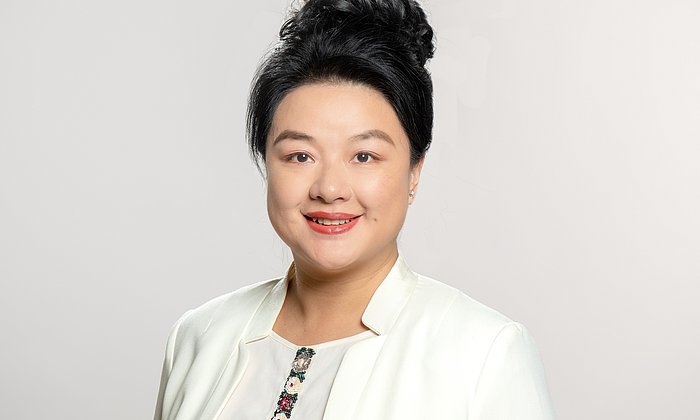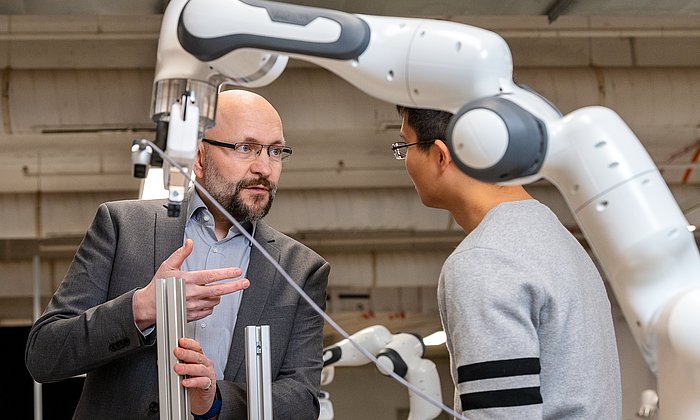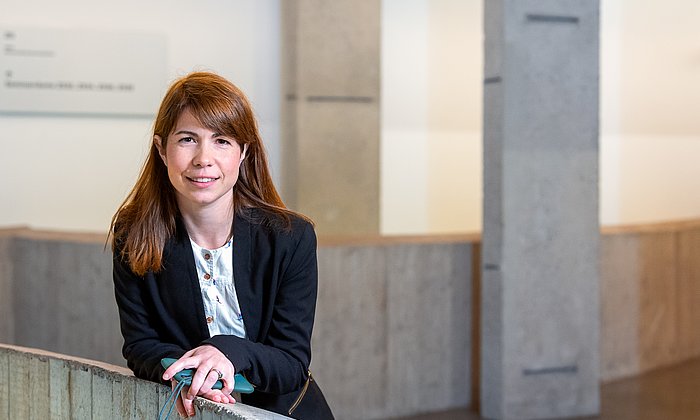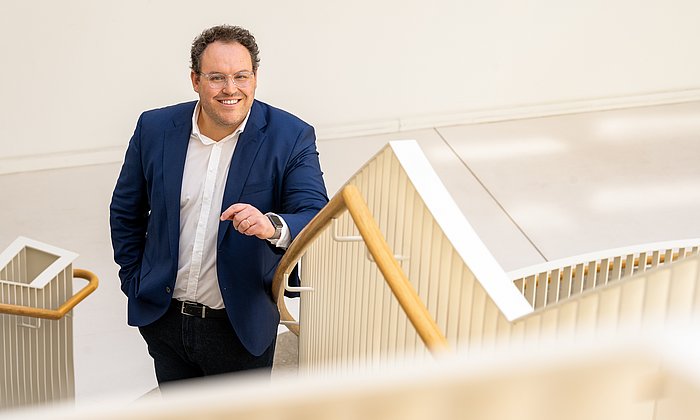NewIn: Jeannette Kuo
"Our responsibility doesn't end when we hand over the key"
Jeannette Kuo has made her home in a number of countries: Indonesia, the USA and Switzerland to name just a few. Since 2022 she's been researching and teaching at TUM as Professor for Architecture and Construction. "My identity has been shaped by many places," she says. "I've always been a part of different cultures, all at the same time."
Maybe it's the combination of this wide range of influences that makes one thing important to Jeannette Kuo above all else: Connecting different perspectives. "We have to learn to address architectonic difficulties with a more local and more context-sensitive mindset. The right solution for one location can't be used everywhere else," she says.
One example is climate-responsive construction, one of Prof. Kuo's research fields. Construction is responsible for approximately 40 percent of global CO2 emissions and is thus one of the major drivers of the climate crisis. Kuo says architecture is more than just finding solutions to technical challenges. "We have to fundamentally reconsider the way in which we build, instead of constantly searching for the next 'magic material'."
"Magic materials" don't solve problems
Wood is one example of these "magic materials", where it is easy to have blind faith. "Building with wood is currently a trend, since it's a renewable raw material and not as much CO2 is emitted when producing it," says Kuo. But where does the wood come from? How is it produced and what are the impacts on forests and their function as carbon sinks when we use it as a construction material? "We should also be asking these questions when we're talking about building with wood."
Jeannette Kuo strongly believes that architects alone will not be able to find the answers. So she founded the "Material Exchange Platform" at TUM. The Platform doesn't collect the materials themselves, but rather collects knowledge on the respective materials, with the focus on a different construction material each year. "Our symposia, publications and exhibitions are meant to bring together experts from a highly diverse range of disciplines to exchange with one another and promote interdisplinary collaboration that allow us to see solutions from other perspectives."
From Indonesia to the Isar
Jeannette Kuo was raised as the child of Chinese-Vietnamese parents in Bandung, Indonesia. As a teenager she moved to the USA with her parents. She later studied at the University of California, Berkeley and at Harvard University and worked in Germany, Chile and Greece, among other places. Today she commutes regularly between Munich, the USA and Zurich, where she is a co-owner of an architectural firm.
These various locations of her life have shaped Prof. Kuo's approach to designs and to her research. For example, when designing facades: "In Asia I saw how traditional neighborhoods had to make way for all-glass skyscrapers. In these blazing tropical climates, full-glass facades are simply the wrong solution. Even in more moderate climate zones, their use is questionable because of the energy-intensive consequences to make these glass towers inhabitable," the architect adds.
Nevertheless, glass facades are seen as a symbol of technology and progress, perhaps wrongly so. "There are technologies for creating climate-responsive buildings in all cultures. They employ various physical principles, for example to provide for shade and cooling," Kuo points out, calling for the reinterpretation of elements of the "vernacular architecture", i.e. traditional and simple building methods, and for their integration in the development of design draft solutions. "It's our responsibility to learn from methods which have already been applied and which have proven effective in local cultures and to reinterpret them for modern use."
Vision reaching beyond the construction process
Mutual inspiration is also an objective of Prof. Kuo's teaching. She's the head of the Integrated Architecture Design Studio – a design course in which third-semester architecture students develop a building from concept all the way to construction detail. Prof. Kuo wants to bring students together at an early stage with experts from other disciplines, including civil engineering and climate technology. In doing so she intends to strengthen skills for transdisciplinary collaboration and to promote a holistic view of the built environment. "I want to encourage students to think critically and analytically, to deal with history and technology in an intelligent manner and to realize all this in their own designs."
It is important to Prof. Kuo that architects think beyond the actual building process itself. "We should ask ourselves what happens with a building after its use. And what has to happen in order for it to be used again, maybe in a completely different way. After all, our responsibility doesn't end when we hand over the keys."
Jeannette Kuo has been Professor for Architecture and Construction at TUM since January 2022. She studied architecture at the University of California, Berkeley and the Harvard Graduate School of Design in Cambridge, USA. She also earned a Master of Advanced Studies at ETH Zurich. Jeannette Kuo has taught at many renowned universities, most recently Harvard University and École polytechnique fédérale de Lausanne. She is the co-founder of the Zurich architectural firm KARAMUK KUO.
Technical University of Munich
Corporate Communications Center
- Undine Ziller
- presse@tum.de
- Teamwebsite



![[Translate to English:] [Translate to English:] NewIn: Matthias Hebrok.](/fileadmin/user_upload_87/_processed_/7/2/csm_20230530_Hebrok_AH_759056_7f158f61c6.jpg)


